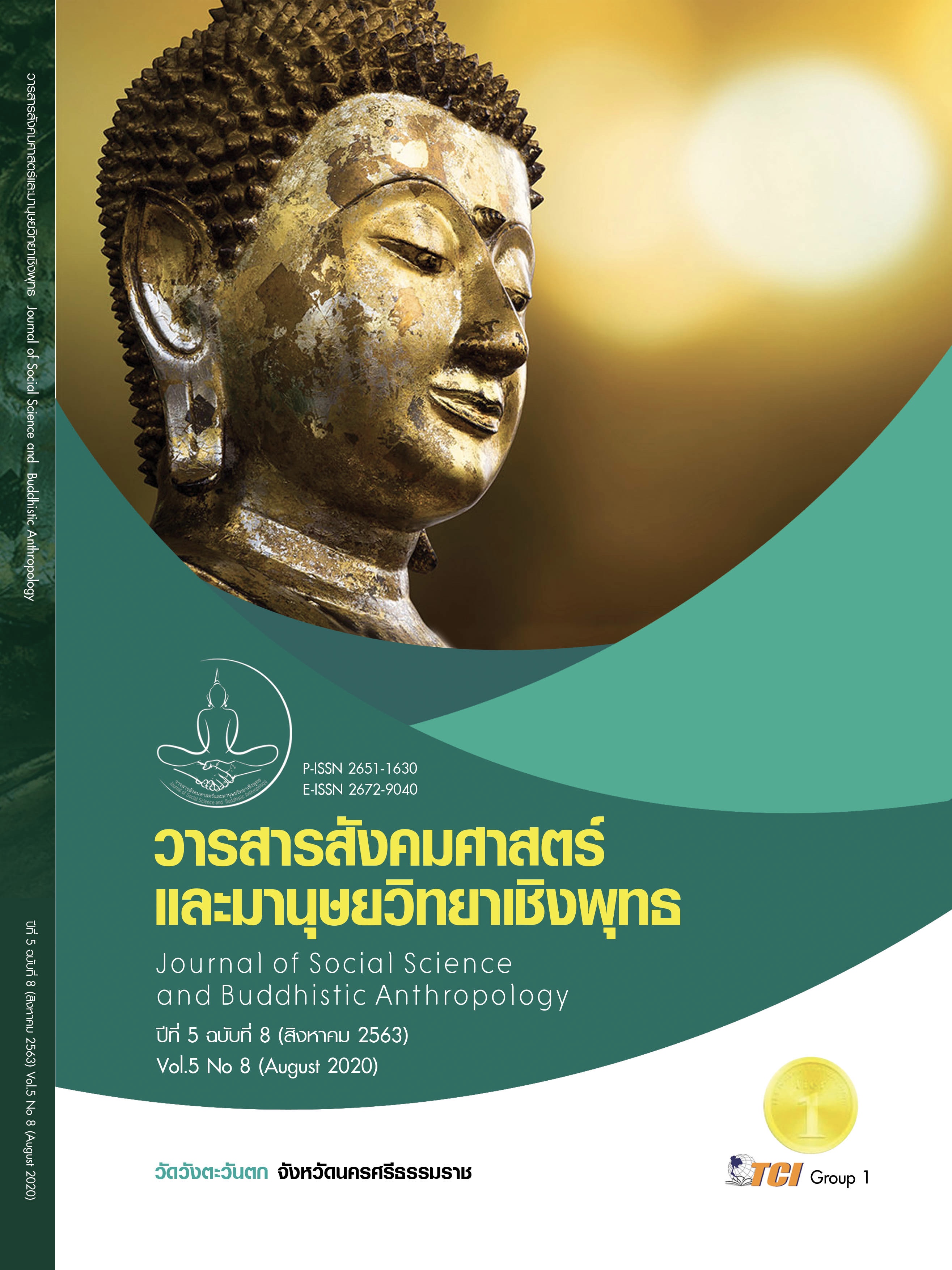DEVELOPMENT MODEL OF LEADERSHIP STYLES OF SCHOOL ADMINISTRATORS IN THE DIGITALAGE UNDER THE JURISDICTION OF THE OFFICE OF EDUDATION REGION 5, LOPBURI
Keywords:
Development Model, Leadership Styles of School Administrators, Digital Age, LopburiAbstract
This article of this study were: 1) to study the leadership situations of school administrators in the digital age. And 2) the development of leadership styles of school administrators in the digital age. By being a research on the development model by Conducting research, including 1) studying the conceptual framework of the research From document analysis. 2) study conditions and problems using questionnaires Select a specific sample represented by the school. 9 persons. 3) Studying the model and leadership development of academy administrators in the digital age using semi-structured interviews. Select a specific sample represented by the school. 20 persons. To bring to draft the form by the workshop and check the draft by using expert seminar. And 4) to develop the leadership model of educational institutions in the digital age by seminar symposium. The sample was chosen by purposive sampling from 9 schools using the statistics, average, standard deviation and paired t-test. By analyzing the content and summarizing. The research was found that: 1) The leadership situation of school administrators in the digital age is that they are responsible for the student support system. There are 6 steps in the work which are: 1.1) Knowing each student individually 1.2) Screening students 1.3) Promoting and developing 1.4) Prevention 1.5) Assistance and 1.6) Referral. 2) The development model of leadership styles of school administrators in the digital age. The overall efficiency is very good. ( = 4.17, SD = 0.70) divided into 3 areas, which are: 2.1) design 2.2) work process and 2.3) result or evaluation report. There is a comprehensive evaluation of all 3 aspects: time, place, and personal. The information obtained is appropriate. With a statistical significance of 0.05
References
โกเมธ พิมพ์เบ้าธรรม. (2547). ภาวะผู้นำของผู้บริหารสถานศึกษาที่จัดการศึกษาระดับมัธยม สังกัดสำนักงานเขตพื้นที่การศึกษาขอนแก่น เขต 1–5. ใน วิทยานิพนธ์ครุศาสตรมหาบัณฑิต สาขาวิชาการบริหารการศึกษา. สถาบันราชภัฏเลย.
เจษฎา รัตนสุพร และยศพร การงาน. (2560). การพัฒนาระบบสารสนเทศเพื่อการวัดและประเมินผลการเรียนรู้ของโรงเรียนระดับประถมศึกษา กรณีศึกษาโรงเรียนสาธิตมหาวิทยาลัยราชภัฏนครราชสีมา. วารสารวิชาการศึกษาศาสตร์ คณะศึกษาศาสตร์ มหาวิทยาลัยศรีนครินทรวิโรฒ, 18(1), 26-41.
ต้องลักษณ์ บุญธรรม. (2559). การเป็นผู้นำยุคเศรษฐกิจดิจิทัลกับการพัฒนาที่ยั่งยืนขององค์กรทางการศึกษา. วารสารวิชาการครุศาสตร์อุตสาหกรรม พระจอมเกล้าพระนครเหนือ, 7(1), 7-20.
ธีระเกียรติ เจริญเศรษฐศิลป์. (2563). กระทรวงศึกษาธิการ. เรียกใช้เมื่อ 14 พฤษภาคม 2563 จาก https://www.moe.go.th>ข่าวภารกิจผู้บริหารระดับสูง>news_act.
บุญชม ศรีสะอาด. (2556). วิธีการทางสถิติสำหรับการวิจัย เล่ม 1. (พิมพ์ครั้งที่ 5). กรุงเทพมหานคร: สุวีริยาการพิมพ์.
เรียม สุขกล่ำ. (2553). ความสัมพันธ์ระหว่างคุณภาพชีวิตการทำงานของข้าราชการครูกับประสิทธิผลโรงเรียน สังกัดสำนักงานเขตพื้นที่การศึกษาสระแก้ว เขต 1. ใน วิทยานิพนธ์การศึกษามหาบัณฑิต สาขาวิชาการบริหารการศึกษา. มหาวิทยาลัยบูรพา.
ลภัสรดา นาโควงค์. (2558). การพัฒนารูปแบบการประเมินผลการปฏิบัติงานของครู ในโรงเรียน สังกัดสำนักงานเขตพื้นที่การศึกษามัธยมศึกษา เขต 23. ใน วิทยานิพนธ์ครุศาสตรมหาบัณฑิต สาขาวิชาการบริหารการศึกษา. มหาวิทยาลัยราชภัฏสกลนคร.
สำนักงานคณะกรรมการพัฒนาระบบราชการ. (2562). สำนักงาน ก.พ.ร. เผยแพร่ผลการพัฒนาแนวทางการให้บริการของภาครัฐ และทิศทางการพัฒนาการให้บริการแบบดิจิทัล. เรียกใช้เมื่อ 14 พฤษภาคม 2563 จาก https://www.opdc.go.th/content/NTcwNw.
สำนักงานราชบัณฑิตยสภา. (2563). การแบ่งภูมิภาคทางภูมิศาสตร์. เรียกใช้เมื่อ 14 พฤษภาคม 2563 จาก http://www.royin.go.th/?knowledges.
อดิเรก พรสีมา. (2563). ผู้นำยุคนี้ต้องมี Digital Mindset. เรียกใช้เมื่อ 14 พฤษภาคม 2563 จาก https://www.bangkokbiznews.com/blog/detail/648785
อุรุดา สุดมี. (2558). รูปแบบการพัฒนาภาวะผู้นำทางด้านเทคโนโลยีเพื่อการศึกษาของผู้บริหารสถานศึกษาเฉพาะความพิการ. วารสารวิชาการบัณฑิตวิทยาลัยสวนดุสิต, 11(2), 7-16.
Cronbach, L. J. (1990). Essentials of psychological testing. (5th ed.). New York: Harpercollins. Publishers.
Krejcie, R. V. & Morgan, D. W. (1970). Determining Sample Size for Research Activities. Educational and Psychological Measurement, 30(3), 607-610.









